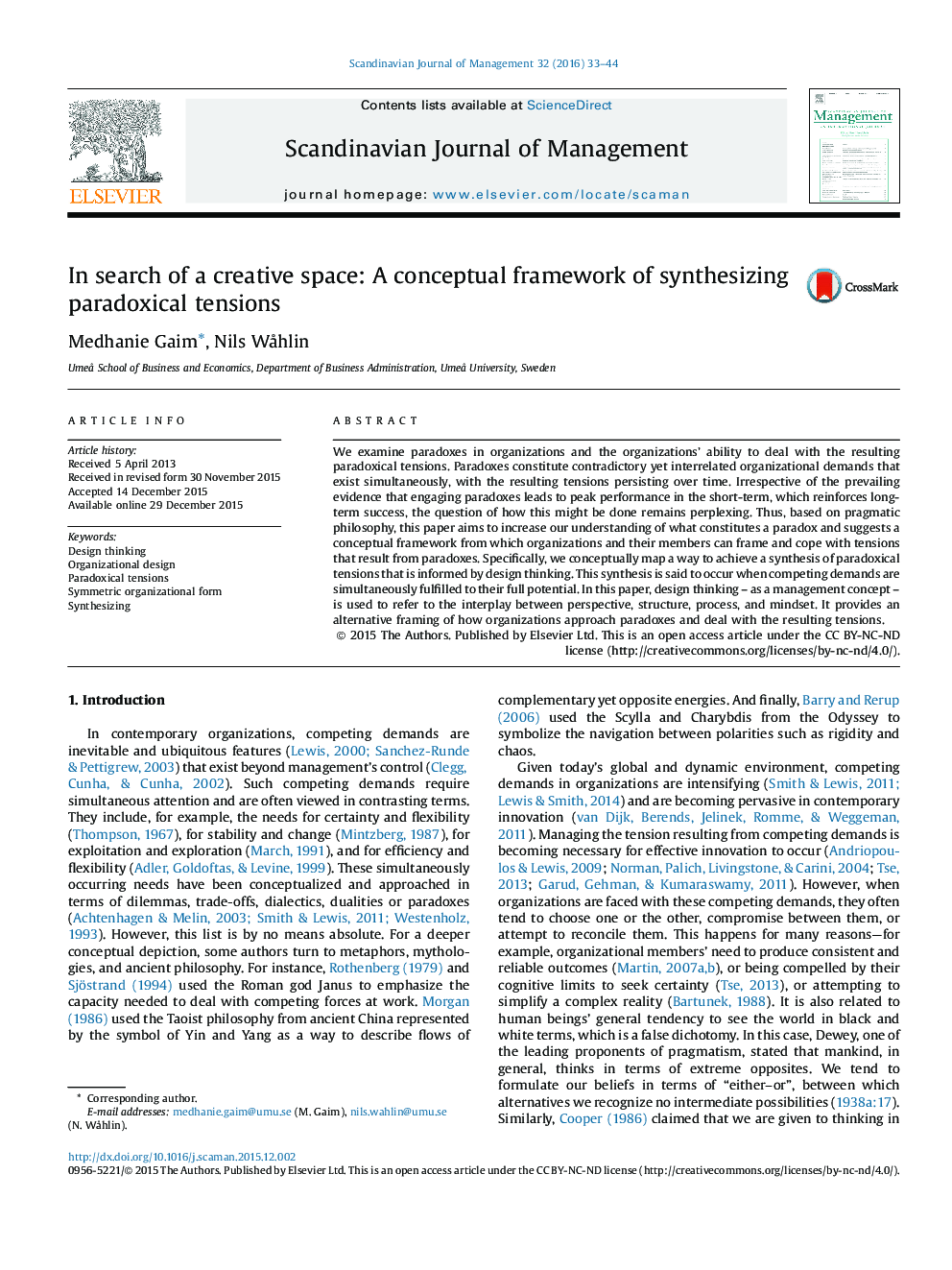| Article ID | Journal | Published Year | Pages | File Type |
|---|---|---|---|---|
| 7254908 | Scandinavian Journal of Management | 2016 | 12 Pages |
Abstract
We examine paradoxes in organizations and the organizations' ability to deal with the resulting paradoxical tensions. Paradoxes constitute contradictory yet interrelated organizational demands that exist simultaneously, with the resulting tensions persisting over time. Irrespective of the prevailing evidence that engaging paradoxes leads to peak performance in the short-term, which reinforces long-term success, the question of how this might be done remains perplexing. Thus, based on pragmatic philosophy, this paper aims to increase our understanding of what constitutes a paradox and suggests a conceptual framework from which organizations and their members can frame and cope with tensions that result from paradoxes. Specifically, we conceptually map a way to achieve a synthesis of paradoxical tensions that is informed by design thinking. This synthesis is said to occur when competing demands are simultaneously fulfilled to their full potential. In this paper, design thinking - as a management concept - is used to refer to the interplay between perspective, structure, process, and mindset. It provides an alternative framing of how organizations approach paradoxes and deal with the resulting tensions.
Keywords
Related Topics
Social Sciences and Humanities
Business, Management and Accounting
Strategy and Management
Authors
Medhanie Gaim, Nils WÃ¥hlin,
